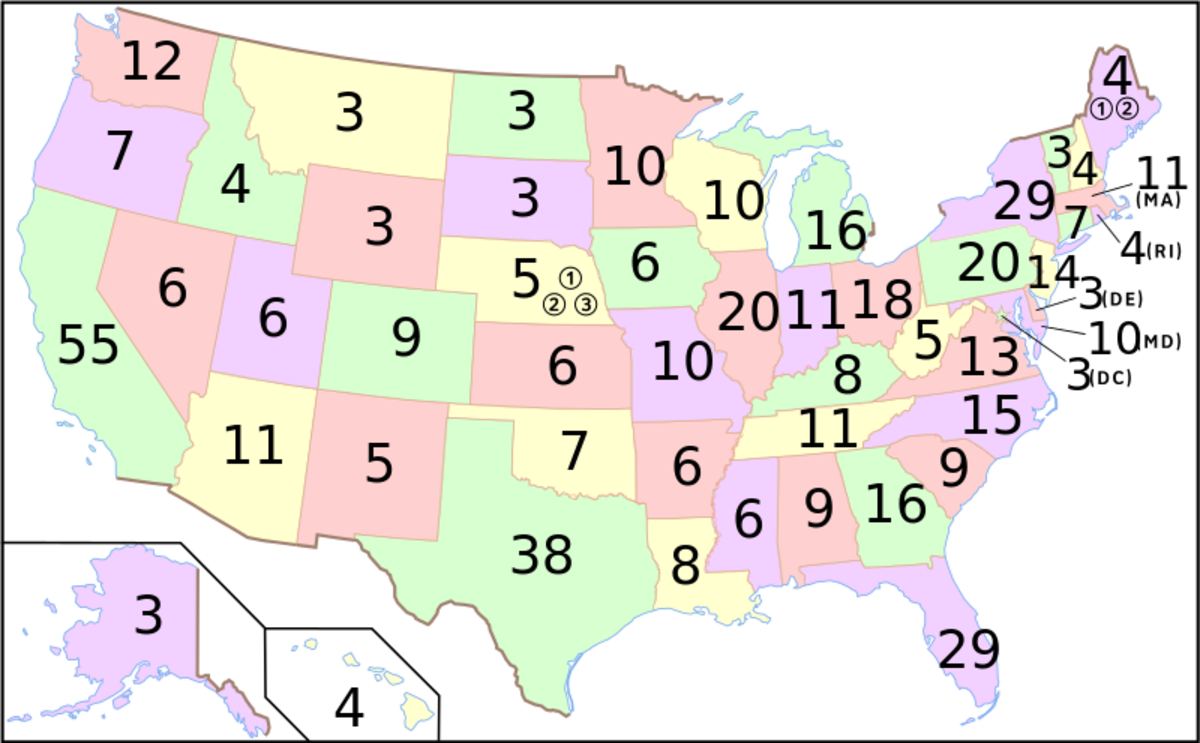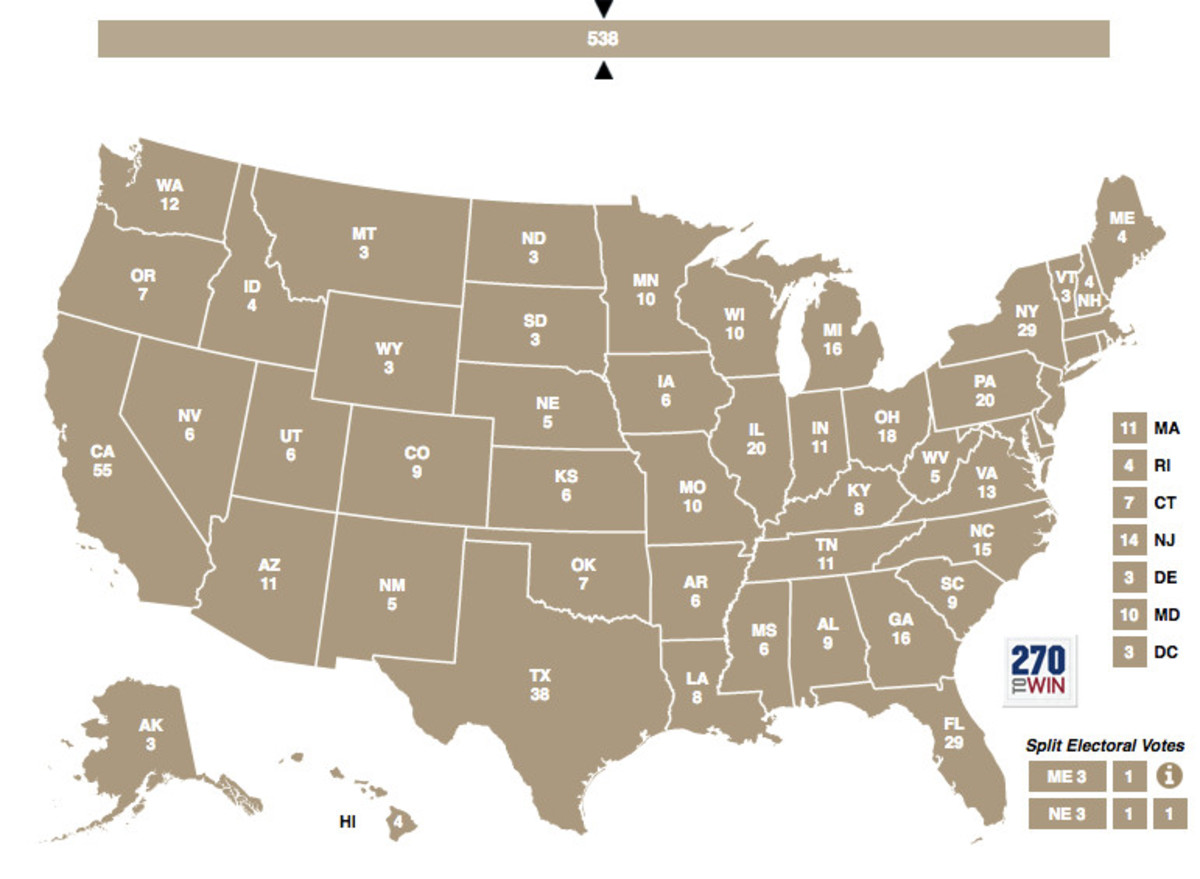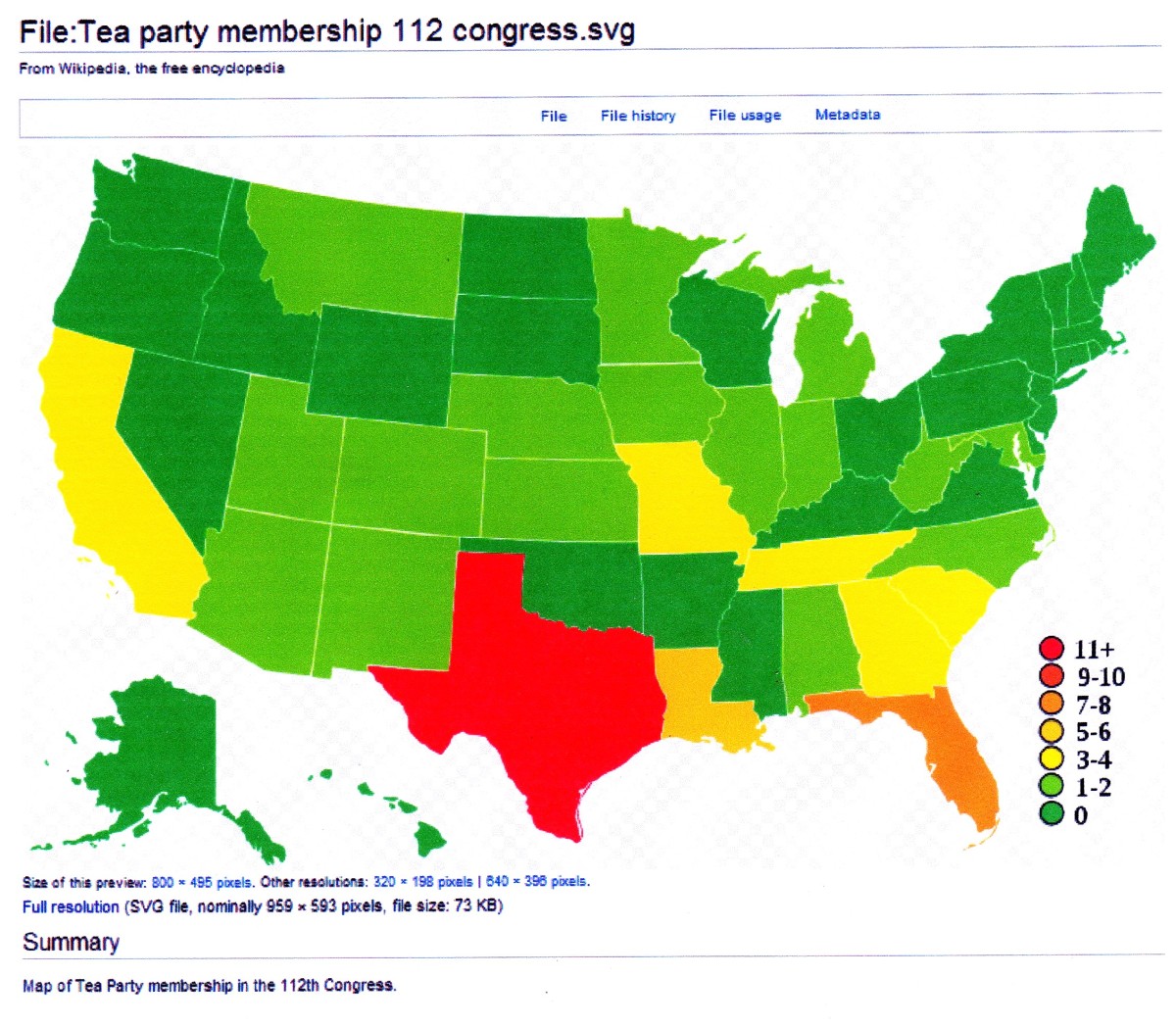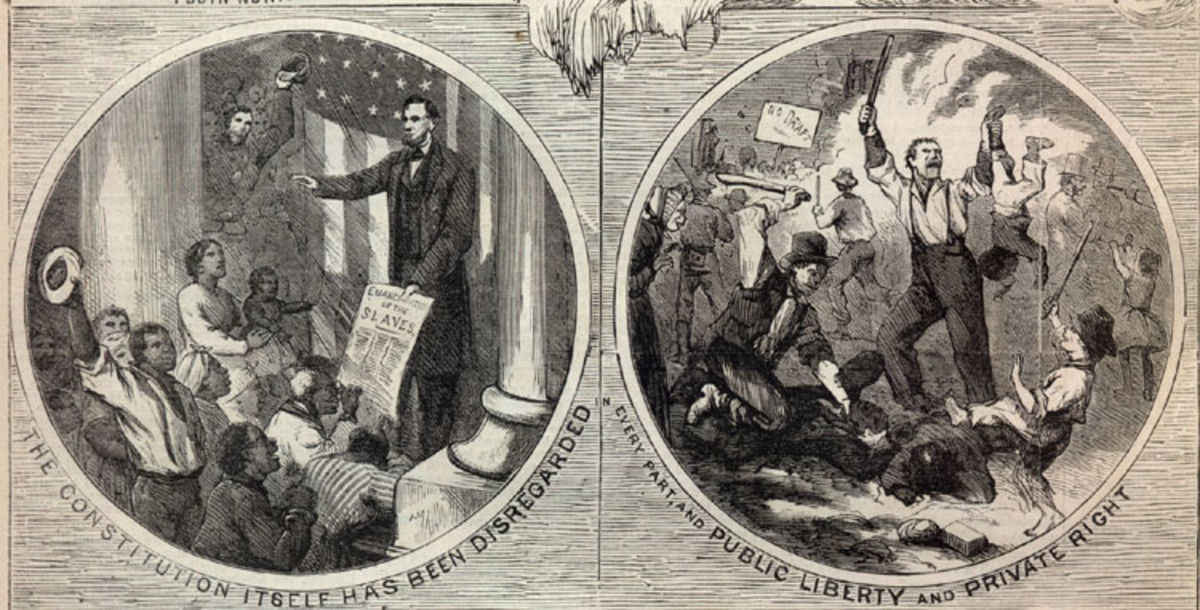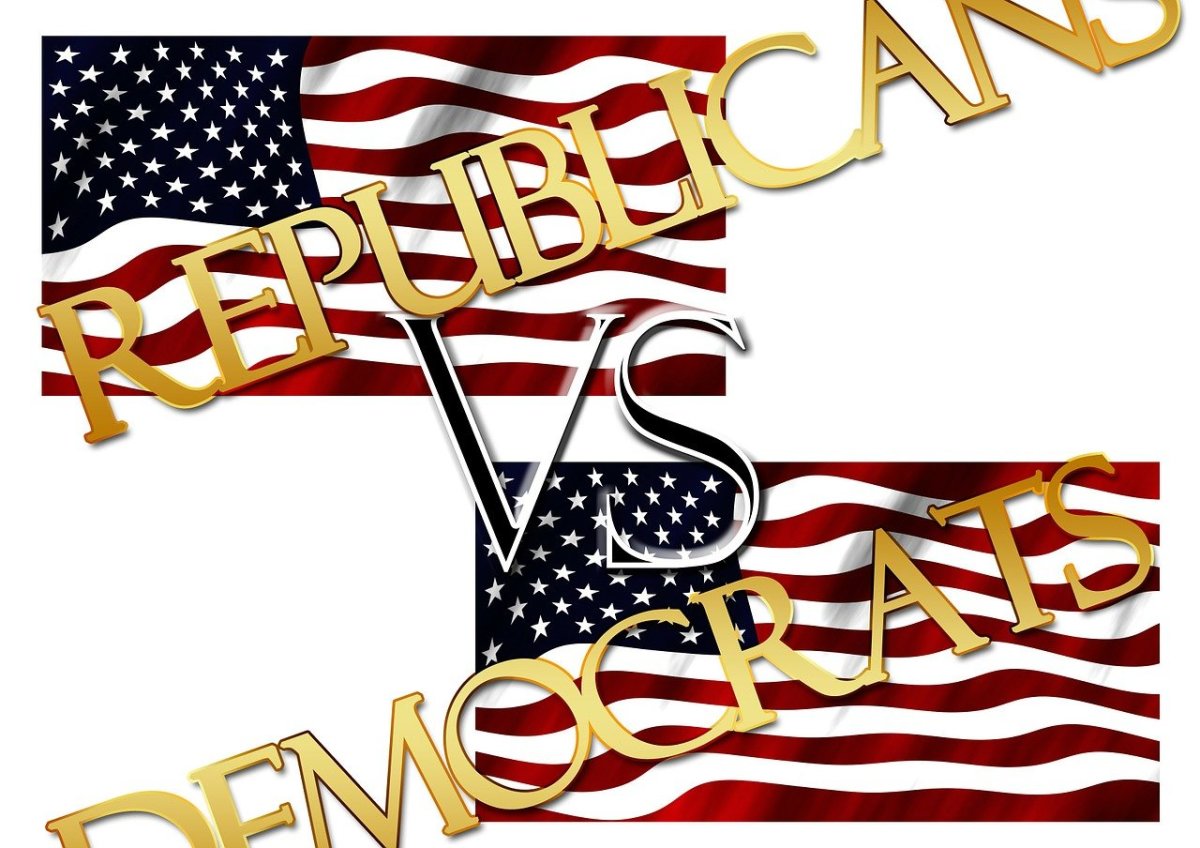Obama's Advantages

In the 2012 Presidential election, Obama won, and he won by a bigger margin than I expected him to. States like Ohio and Virginia did tilt his way in the election, and the 3 percent bounce he got from the convention in Charlotte ultimately enticed as many voters as his campaign did in 2008. Mitt Romney struggled to connect with voters on many issues, namely taxes and Medicare, and he never quite managed to make himself more likeable. Obama maintained his edge all through the campaign, and even managed to make ground after a disastrous first Presidential debate.
The first among these advantages was the electoral college, and it is for this reason that I have come to love the institution so very much; Not only did it favor Obama, but it made sense of any otherwise senseless election. Obama was already almost halfway towards the required number of electoral votes he needed to win reelection, at 240 electoral votes (at the time this hub was originally written). Romney's eventual electoral count stood at 206. When Obama won, his electoral vote stood at 332.
The other advantage Obama had over Romney was enthusiasm. Republican voters where certainly enthusiastic, but just not about Mitt Romney. Their enthusiasm came from a desire to see Obama ousted from office. But Obama still had a rock solid base of loyal supporters, whose support for him was not swayed by a bad jobs report or by an avalanche of negative adds. More liberal Democrats felt strongly for Obama than conservative Republicans felt strongly for Romney. The gap came from a growing dissatisfaction with how Romney had been conducting his campaign, compared to the President. Towards the end, Romney seemed to have lost his ability to control the debate and stay on message.
Obama had a final thing going for him; he was constantly more likeable than Mitt Romney. Many voters will tell you that they do not vote based on who they personally like the best. Don't believe it. There are many statistics showing that the most likeable candidate usually wins in an election, and Mitt Romney was one of the least popular challengers to an incumbent President since, well, John Kerry. The likeability gap eventually fell in line with the enthusiasm gap.
So, in the end, this election, like all of the others in American history, was decided by the factors presented above; The electoral college, the enthusiasm felt by voters for either of the candidates, and the degree to which either of the two candidates were "liked" by a majority of voters.
So, what can the two parties learn from this information? What the Democratic Party will likely take from this election is that appealing to a variety of voters works well for them. They targeted young people, women, minorities and homosexuals, and consequently, the Democrats won by large margins among these groups. They can also be fairly confident of broad popular support, at least for a while. Nevertheless, Congressional Democrats are still extremely unpopular nationally, with only 19 percent support.
Not that Republicans are in any position to be smug about this; Currently, Congressional Republicans are polling at 12 points nationally. Even this seems to be the least of their problems. In a less white, more diverse and younger country, that is more socially liberal than ever before, Republicans find themselves being defined by a tiny but extremely loud fringe of the party, one which is far more conservative than than the country as a whole. As a result, Republicans need to do some serious soul searching. It would probably help them if they could work with the President on the upcoming Sequester, rather than try to resort to the old blame game that failed to win them the White House.
As for the President, he is in the best position of all. Having just rode into his second term with a triumphant and rousing Inauguration speech, he has set an ambitious agenda, one that, for now, is supported by a majority of Americans. To be sure, his Affordable Care Act is still widely unpopular in principle, but many of the laws specific requirements, such as allowing children to remain on their parents health plans until the age of 25, have majority support. But Obama also wields popular support on marriage equality, equal pay for women, increasing tax rates for the very wealthy, action on climate change and on stricter background checks for gun sales.
With all of this in mind, Obama still is just beginning his second term. Much can happen in four years, with much of it depending on the results of the 2014 midterm elections. It remains to be seen whether Barack Obama can build a legacy comparable to that of Ronald Reagan.
Washington Post-ABC News poll
(enthusiasm poll)
Presidential Election Map 2012 - The Washington Post
Presidential Race Ratings and Swing States - Election 2012 - NYTimes.com
2012 Election: Electoral Vote Tracker - USATODAY.com
Electoral Map - Election Center 2012 - Elections & Politics from CNN.com
RealClearPolitics - 2012 Election Maps - Battle for White House
- James Madison Was Right About Factions
James Madison spoke of factions when he wrote Articles 9 and 10 in "The Federalist Papers". What he wrote still holds true today.

